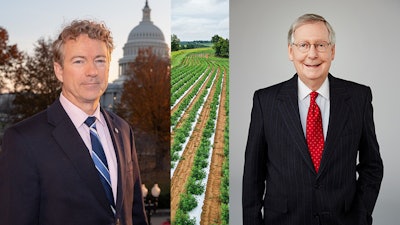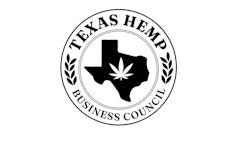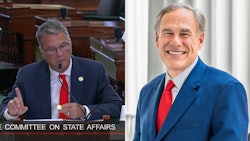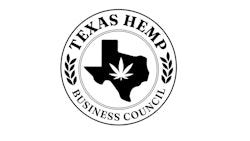
Kentucky U.S. Sens. Rand Paul and Mitch McConnell, both Republicans, disagreed on a path forward for consumable hemp products, but Paul prevailed July 29 in his pursuit to remove prohibition language from a federal spending bill.
The language, spearheaded by McConnell, had aimed to redefine hemp in an effort to close a “loophole” in the 2018 Farm Bill that has led to the proliferation of intoxicating hemp-derived products being sold throughout the nation.
Under McConnell’s legislative fix, hemp-derived products containing synthetic compounds and/or quantifiable amounts of THC or THCA—or other cannabinoids that have similar effects on humans or animals—would be illegal. That language was attached to the fiscal 2026 Agriculture, Rural Development, Food and Drug Administration (FDA), and Related Agencies Appropriations Act, which 27 members of the Senate Appropriations committee unanimously approved earlier this month.
The 136-page spending bill provides more than $27 billion in discretionary funding to support farmers, rural communities, nutrition programs, medical research and other issues to protect the nation’s food supply.
However, Paul threatened to block the entire legislation from Senate passage if the hemp language wasn’t stricken, Politico reported. Sen. John Hoeven, R-N.D., who chairs the Appropriations Agriculture-FDA subcommittee, told reporters on July 29 that Paul succeeded in undoing the hemp language McConnell helped secure.
“We could never get agreement between the two,” Hoeven said.
McConnell championed the federal legalization of hemp in 2018 as a means to help Kentucky farmers reeling from the downturn of the tobacco industry. In recent years, he said he had hoped to create an agricultural commodity for the hemp grain and fiber markets and that he never intended to open the door for unregulated and intoxicating products, especially those with synthetic derivatives, such as delta-8 THC.
“These intoxicating products have flooded the market in the absence [of a] regulatory structure and often use deceptive and predatory marketing towards children,” McConnell said during the Appropriations Committee hearing on July 10.
McConnell furthered his call to fix the unintended consequences of his 2018 Farm Bill through a July 16 opinion piece in the Lexington Herald-Leader, in which he described cases of children unintentionally ingesting intoxicating products that looked like candy. He vowed to fight to protect them.
That fight, however, did not extend to holding up the entirety of a $27-billion funding package.
Paul, meanwhile, has also said he wants to protect the livelihoods of Kentucky farmers, but his approach to hemp is different.
Last month, Paul introduced the Hemp Economic Mobilization Plan (HEMP) Act of 2025, legislation that would loosen certain potency restrictions by amending the definition of hemp from 0.3% delta-9 THC to 1% THC.
However, the legislation would also require testing of hemp-derived products rather than the hemp flower or plant itself. Under the 2018 Farm Bill, hemp must test below 0.3% THC on a dry-weight basis during a pre-harvest field test. The agricultural legislation does not regulate finished goods.
The HEMP Act also intends to protect legal hemp shipments from government seizures. Paul has sponsored the legislation for multiple congresses now.
“For years, I’ve led the fight in Washington to restore one of Kentucky’s most historically vital crops by legalizing industrial hemp,” Paul said in September 2024. “We achieved a hard-won victory, but there is still work to do to prevent the federal government from weighing down our farmers with unnecessary bureaucratic micromanaging. My legislation will help this growing industry reach its full economic potential and bring transparency to government regulations.”
While McConnell lost the battle to ban intoxicating cannabinoid hemp products in the Senate, the war wages on in the House, where Rep. Andy Harris, R-Md., authored the prohibition language and was successful in pushing it through the lower chamber’s Appropriations Committee on June 23.
As the two chambers work to pass their respective measures and reconcile differences before the Agriculture, Rural Development and FDA programs’ fiscal year ends on Sept. 30, a finalized version of the legislation could still include language to redefine hemp.
In the meantime, the U.S. Hemp Roundtable took this week’s news as a win, claiming that the language drafted by Harris in the House and inserted by McConnell in the Senate would have “wiped out over 95% of the hemp industry.”
“We are deeply grateful to Senator Rand Paul for standing up for the hemp industry,” the hemp business advocacy organization said in a public statement. “There were intense negotiations over the past several days, and a lot of work was done to find common ground for a substantive compromise that would protect the hemp industry and the livelihood of hemp farmers. A grand compromise was not secured, but we are hopeful that the framework for discussions will help inform lawmakers when the issue inevitably arises again after the August recess.”


























